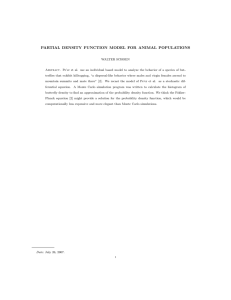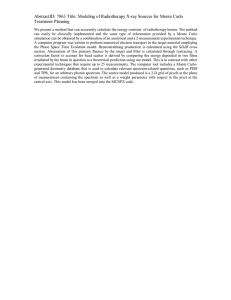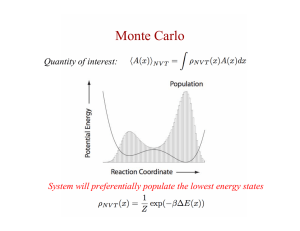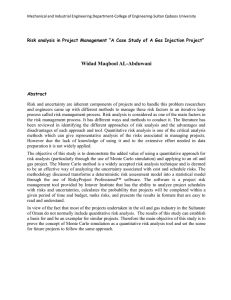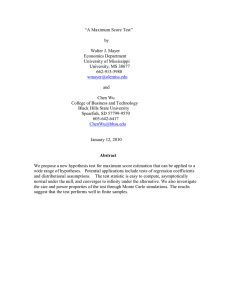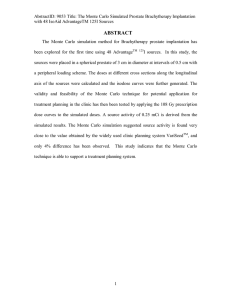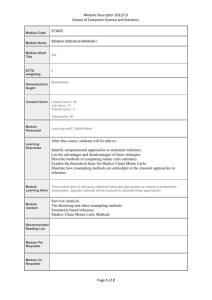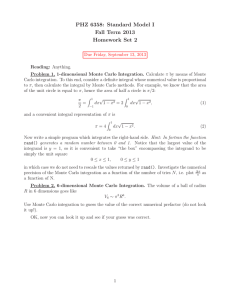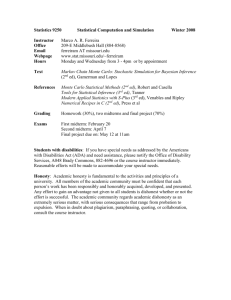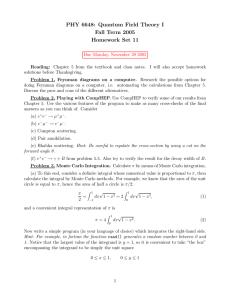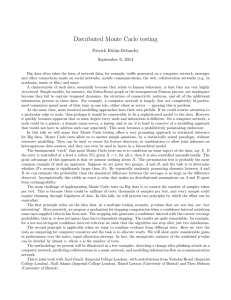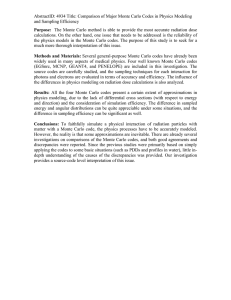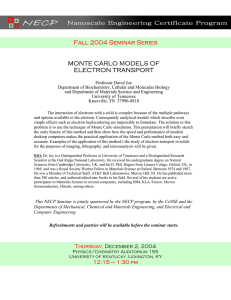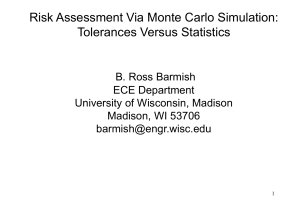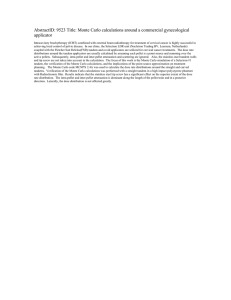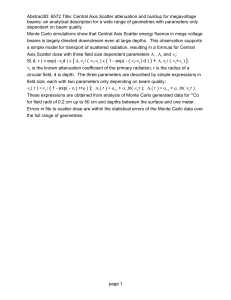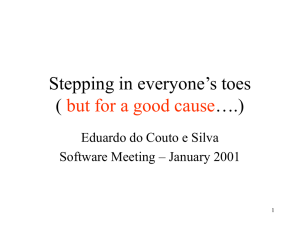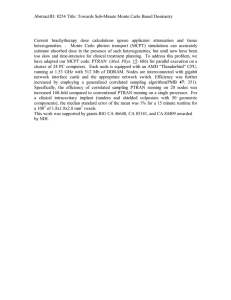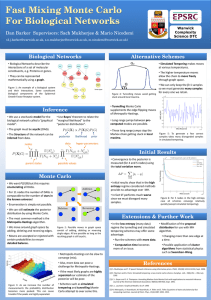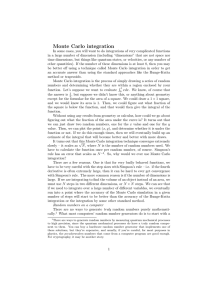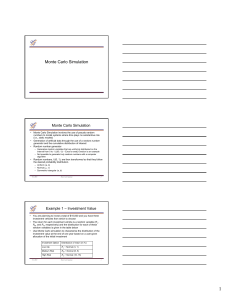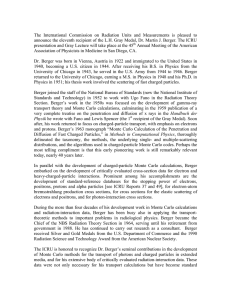Real-Time Prediction of Component Failure in Formula One
advertisement
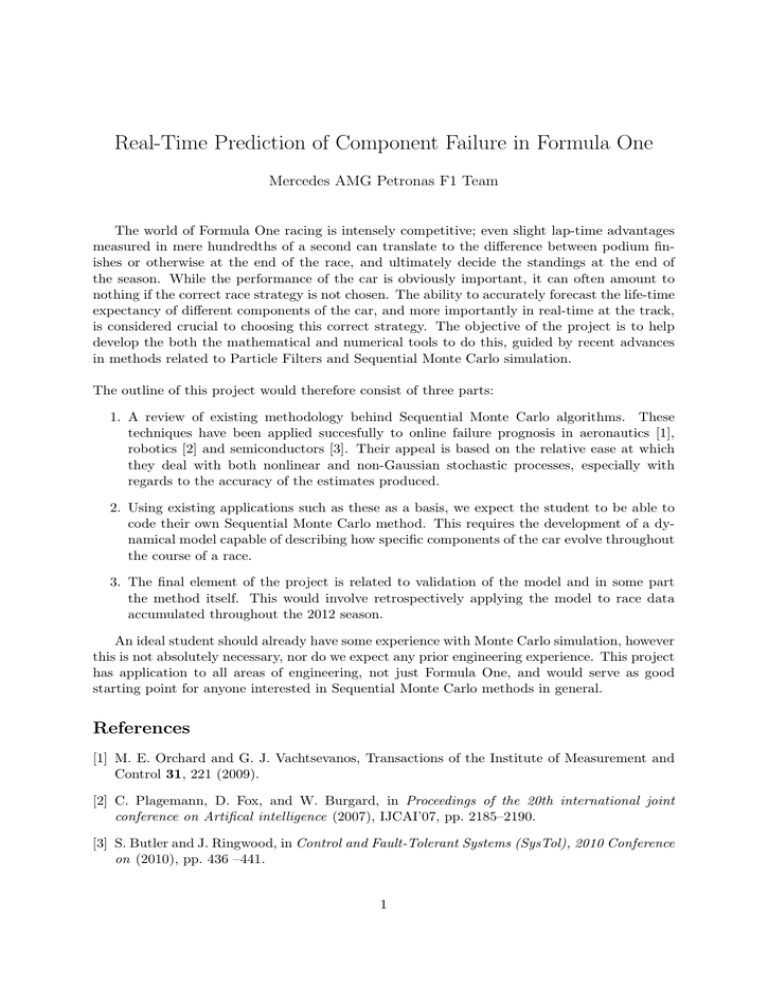
Real-Time Prediction of Component Failure in Formula One Mercedes AMG Petronas F1 Team The world of Formula One racing is intensely competitive; even slight lap-time advantages measured in mere hundredths of a second can translate to the difference between podium finishes or otherwise at the end of the race, and ultimately decide the standings at the end of the season. While the performance of the car is obviously important, it can often amount to nothing if the correct race strategy is not chosen. The ability to accurately forecast the life-time expectancy of different components of the car, and more importantly in real-time at the track, is considered crucial to choosing this correct strategy. The objective of the project is to help develop the both the mathematical and numerical tools to do this, guided by recent advances in methods related to Particle Filters and Sequential Monte Carlo simulation. The outline of this project would therefore consist of three parts: 1. A review of existing methodology behind Sequential Monte Carlo algorithms. These techniques have been applied succesfully to online failure prognosis in aeronautics [1], robotics [2] and semiconductors [3]. Their appeal is based on the relative ease at which they deal with both nonlinear and non-Gaussian stochastic processes, especially with regards to the accuracy of the estimates produced. 2. Using existing applications such as these as a basis, we expect the student to be able to code their own Sequential Monte Carlo method. This requires the development of a dynamical model capable of describing how specific components of the car evolve throughout the course of a race. 3. The final element of the project is related to validation of the model and in some part the method itself. This would involve retrospectively applying the model to race data accumulated throughout the 2012 season. An ideal student should already have some experience with Monte Carlo simulation, however this is not absolutely necessary, nor do we expect any prior engineering experience. This project has application to all areas of engineering, not just Formula One, and would serve as good starting point for anyone interested in Sequential Monte Carlo methods in general. References [1] M. E. Orchard and G. J. Vachtsevanos, Transactions of the Institute of Measurement and Control 31, 221 (2009). [2] C. Plagemann, D. Fox, and W. Burgard, in Proceedings of the 20th international joint conference on Artifical intelligence (2007), IJCAI’07, pp. 2185–2190. [3] S. Butler and J. Ringwood, in Control and Fault-Tolerant Systems (SysTol), 2010 Conference on (2010), pp. 436 –441. 1
